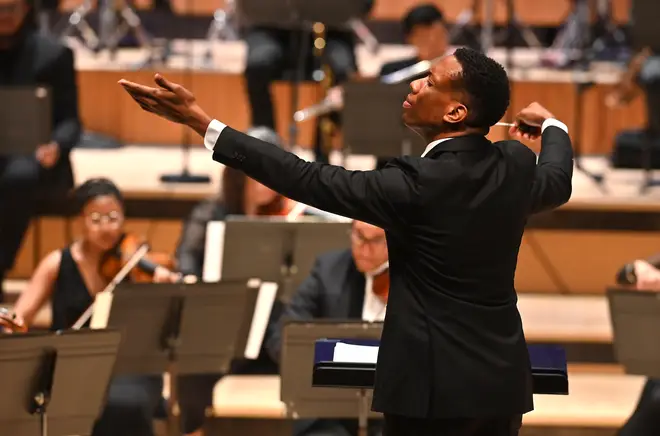New research reveals shocking barriers to young people accessing classical music
12 November 2021, 15:57

A report from Arts Council England has revealed that accessibility to classical music is under threat, as young people from higher income families are significantly overrepresented across the industry’s elite training opportunities.
New research has revealed the urgent need to improve access to orchestras, and the wider classical music sector.
Creating a More Inclusive Classical Music, a six-year-long study of the English orchestral workforce and the current routes to joining it, surveyed workers across the classical music industry.
Of more than 960 people working in classical music, almost half were found to hail from London and the south east with just a tiny fraction emerging from Yorkshire, the North West or Midlands.
The report also showed that 80 percent of classical musicians grew up in more affluent areas where high proportions of the population attended university.
Other troubling findings show that a quarter of women in the industry had faced financial barriers such as low salaries, and around half of LGBTQ+ respondents, disabled respondents and Black, Asian and other ethnically diverse respondents reported having faced barriers restricting opportunities.
Chi-chi Nwanoku OBE, Founder and Artistic & Executive Director, Chineke! Orchestra, and Classic FM presenter, commented on the reports findings, saying: “We will never know the number of talented individuals that might have gone on to achieve global acclaim had they been offered a fair chance regardless of origin or background.”

Chi-chi Nwanoku: ‘After a three-decade career in classical music, I was still the only person of colour on stage’
Arts Council England have published a response to the report on their website, with an action plan to unlock musical talent across England working with orchestras, music educators, broadcasters, and record labels.
“Too many people currently encounter barriers, real or perceived, to entering, remaining and being successful in the sector,” reads the Arts Council England’s response.
“We want to work with the sector to make classical music more inclusive and reflective of England as it is today, and we’ve come up with a plan to help do just that.”
The Arts Council has pledged, over the next three years, to work directly with orchestras, venues and promoters to ensure fair and inclusive treatment in the industry.
It will also commission a major research project to understand children’s relationship with classical music and how it impacts their decision to learn a musical instrument, as well as a long-term action research project aimed at supporting young people from diverse backgrounds interested in a career within the music industry.
Read more: Research shows huge surge in Millennials and Gen Zers streaming classical music

Camille and Julie Berthollet: ‘It’s our responsibility to show classical music to everyone’
Dr Darren Henley OBE, chief executive of Arts Council England and the former managing director of Classic FM, asked: “When was the last time you listened to a piece of classical music?”
“It is quite likely it was in an advert or a film. And your favourite pop songs may owe as much to Mozart, Beethoven and Rachmaninov as they do to more recent influences like the Beatles, Madonna, or Motown greats like Diana Ross and Marvin Gaye. That is because classical music is a big part of the soundtrack of our lives – even if we do not realise it.
“Classical music is too often seen as the preserve of the privileged in this country. Before I became the Chief Executive of the Arts Council, I was in charge of the radio station Classic FM, where we attracted a huge and broad range of listeners.
He tells the Daily Express: “It proves that there is no limit to the appeal of classical music. That is something the Arts Council believes in passionately too. We think all music, including classical music, can inspire you, make you happier, widen your horizons and open up opportunities.”


































